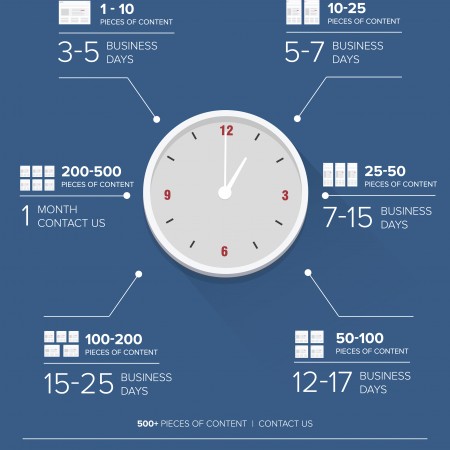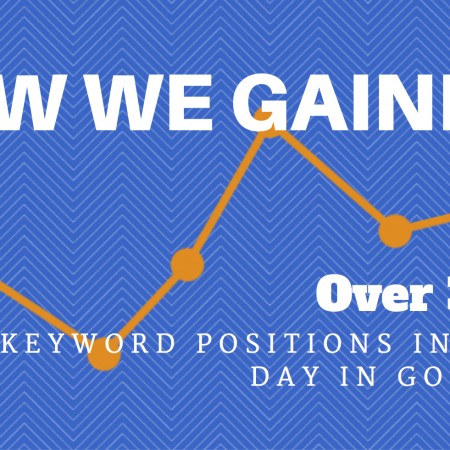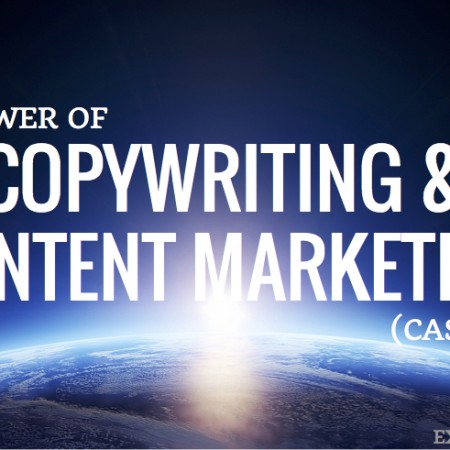This October at Express Writers: Expanded Team, Two New Services
Hi, blog readers! Happy October, and thanks for joining me today…you’re in for some fun stuff. First up, I’m sharing all about the staff changes and implementations we’ve done here at Express Writers this month. Next, it’s all about the super cool new services launched today in the Content Shop! Ready? New Staff Members & Improved Quality Processes This month, at Express Writers, we’ve been through some serious changes…although it’s been an absolutely crazy month, we’re ending on a very strong note. For the past three weeks, I’ve been busy prepping and training our writers and managers for our two new services that are now live today in the Content Shop, Authority Content & Case Study Creation. The training I wrote and put out for Authority Content is super detailed – over 20 pages of exclusive, directional content that you won’t find anywhere else. I’ve worked one-on-one with our case study specialist, an inbound marketing expert, to craft the perfect case study for us before we started formulating how to sell it. So, needless to say, I’m super excited about these two new high-ROI, turnkey content marketing services–read below for more details on both. And, this month, we’ve been on-boarding and training new faces in the management staff to support the volume of incoming client inquiries and high-level project support. It’s been extremely hard to find reliable, high quality team members in the staff that can fully pass our rigorous tests and nail every part of the process, and be in our team every day working hard. We’ve had several people in staff come and go this year, who weren’t devoted to performance and the hard work it takes to survive in this industry. It’s taken us a while to find the right people, but we’ve been able to onboard a fully dedicated staff editor for large projects ($8,000+ per month client spend), and a dedicated WordPress posting editor, besides our regular editing team. Bringing in a wealth of experience on all fronts, our new editors have our quality at heart! Earlier, in September, I had the honor of hiring the talented Tara Clapper, who comes from SEMrush and brings a wealth in years of content marketing experience to Express Writers, from knowing the ins and outs of online content strategy to hosting webinars and networking at events. Tara has been very successful at helping us on the editing team and giving our clients spectacular insights for their content success. Janeka, one of our social media experts, was recently multi-tasked with the role of Content Support Specialist, and she’s been rocking it out. New Logo & Content Shop Icons As most of you know, we’re on the verge of a major relaunch we’ve been building for 1+ year: a custom developed Content Shop and teamroom. Till then, we decided to run with some major brand improvements early! Our new logo is an expression of how our brand has truly taken flight this year, despite all the difficulties in our way. ✈️ As a content agency, we are constantly evolving, adapting, and growing. Writing is a skill that takes great mentoring and lots of practice to perfect. That is what we believe in, and our goal and mission as a content writing agency. This year, we’ve never been more focused on our mission and more capable of delivering amazing quality – the content that 2016 marketers need. It was time to take our paper plane and let it fly! New look in the content shop: 40+ brand new icons for each of our services, shaped and colored in the flat, poly style of design that our new logo is in. Our designer rocked these out in less than a week! Other fun stuff: we’re going to be hitting up the Search Engine Journal Summit in New York City on November 2: my CTO Josh, Tara, myself, and our SME Krystal! (Want 15% off tickets and a chance to get a copy of my book for free? Check out the details here!) Come say hi if you’re in the area. We’d love to meet you! Now… ready to hear about our new services that went live today? What Are the Two New Writing Services at Express Writers This October? Let me start the new product discussion (yay!) by asking you a question… Does there ever come a time when you write, create, publish, publish, rinse, repeat… And you stand back and realize: Where is the ROI in all this content that I put out? There’s so much information out there about how to do it. More content, not less… but hey, let’s not forget quality over quantity… How do you trim the fat? Create powerful, effective, meaningful content that WILL get ranked well and read, shared by real people who actually got something from your content? There’s only one way: by creating the most authoritative piece on the subject. But that means a ton (and I mean a ton) of work has to go into it. First, you have to research to find your perfect low competition, high volume long-tail keyword before you even write it. Second, you have to write an authoritative, expert, long-form post (1,500-3,000 words is what Google ranks the most) that nails the specifics of what the topic should give the reader, and is written in an engaging, readable, optimized style. Thirdly: you’ll need to create custom graphics and visuals for your long-form piece to represent the key points, and finally, a feature graphic branded to you that will go with it everywhere on social media. The Answer to Your Most In-Depth, Amazing Content Need: Authority Content I took those points into consideration, picked the best four writers out of my team of over 50, and over the past month I sat down and created a workflow process where we nail all three of those points, called Authority Content. You know what? The workflow means four people are involved in creating one post. That’s what it looks like nowadays when you want to nail content. Be the biggest name in the book. Outshine every other result in the SERPs and be THE result people WANT to click on… And when they click through, present them with the content piece that answers every question they had on the topic. Then, and only … Read more









